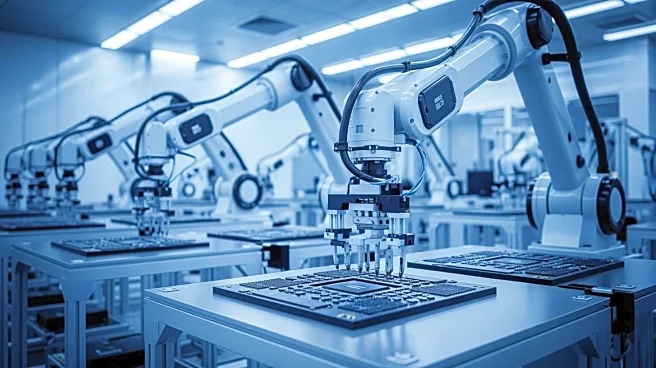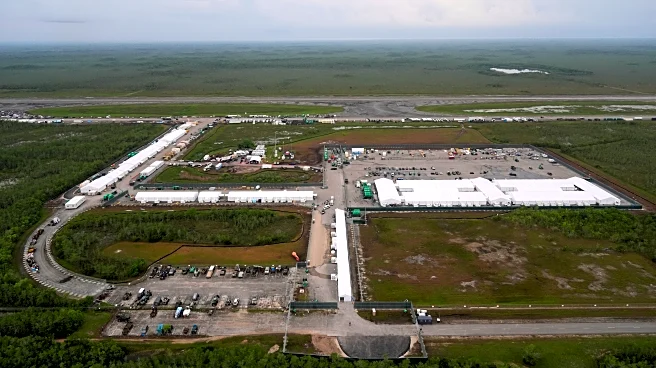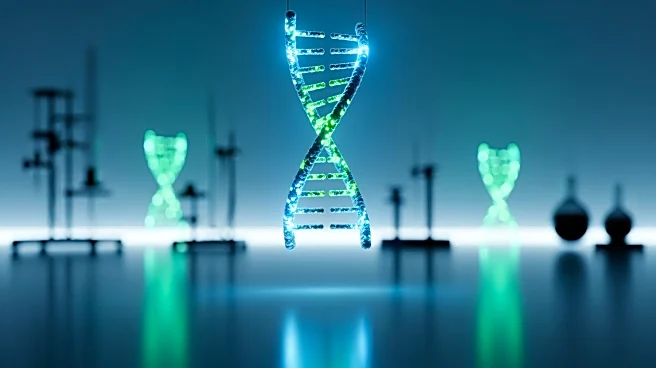What's Happening?
Tesla CEO Elon Musk announced the company's intention to build a 'gigantic' semiconductor fabrication plant to support its growing ambitions in artificial intelligence and robotics. During Tesla's annual shareholders meeting, Musk highlighted the challenge
of securing enough chips to meet the company's needs, despite current partnerships with major chipmakers like Taiwan Semiconductor Manufacturing Company (TSMC) and Samsung Electronics. Musk also mentioned potential collaboration with Intel but emphasized that even the best-case production scenarios from these suppliers would be insufficient. The proposed 'Tesla terra fab' would initially have a capacity of 100,000 wafer starts per month, with plans to scale up to 1 million. This move underscores Tesla's strategic shift towards AI and robotics, which Musk believes could exponentially increase the global economy.
Why It's Important?
The development of a dedicated chip fabrication plant by Tesla could significantly impact the semiconductor industry, which is currently experiencing high demand due to the AI boom. By establishing its own production capabilities, Tesla aims to secure a stable supply of chips, crucial for its AI and robotics projects. This move could also influence other tech giants to consider similar strategies, potentially reshaping the semiconductor supply chain. For Tesla, this initiative represents a critical step in maintaining its competitive edge in the rapidly evolving AI and robotics sectors. The success of this venture could lead to increased innovation and economic growth, aligning with Musk's vision of a future where AI and robotics play a central role in the global economy.
What's Next?
Tesla's next steps involve detailed planning and investment in the construction of the chip fab. The company will need to navigate the complexities of semiconductor manufacturing, including securing the necessary technology and expertise. Stakeholders, including investors and industry partners, will be closely monitoring Tesla's progress. The potential collaboration with Intel and other chipmakers could also evolve, depending on Tesla's capacity to meet its chip production goals. As Tesla advances in this direction, the broader tech industry may respond with increased investments in semiconductor capabilities, potentially leading to a more diversified and resilient supply chain.















